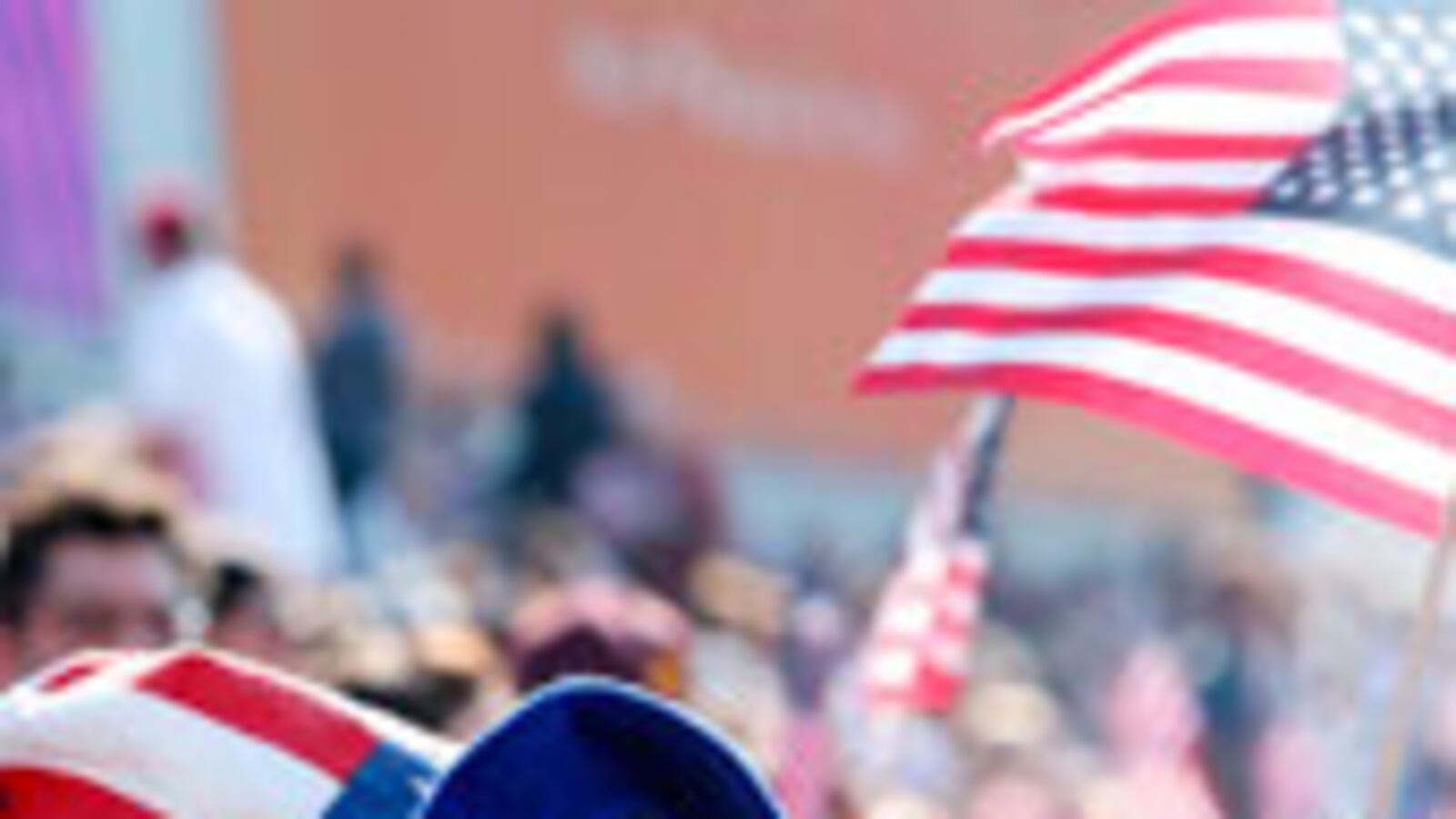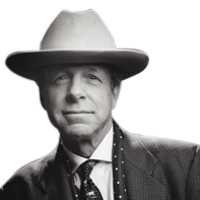
Yes, you can change politics. We had a shot and left you a lot of wreckage. But there are a lot of hopeful signs that you, the next generation of voters, are different. You appear to be a generation with a lot fewer selfish chromosomes and a lot more socially responsible DNA.
President Obama wants to change the way Washington works. President Bush came into office intent on doing the same.
Can it happen? We hope so, because the historically complex problems facing our country right now deserve an honest, open debate. Ordinary American voters are not at fault. They want change; they vote for it, repeatedly; they become frustrated when it doesn't happen. Despite our collective will, somehow our discourse winds up back in the gutter.
This is not a plea for everyone to lock arms. We hope the next generation of activists bash each other's brains out.
Our hope is that recent changes in politics, activism and technology might—might—usher in a new era of more enlightened debate.
In 2000 and 2008, calling for a new way of doing politics won votes. Looking ahead, our bet is that those who live by a different standard of political behavior will prevail while those who revert to familiar old-school tactics will find themselves on the losing end.
We've talked to hundreds of younger voters, activists, and students who desperately want to change politics. They are post-judgmental about race and ethnicity, sexual orientation, different upbringings, diseases, or other conditions that once stigmatized people.
What they don’t like, however, is old-fashioned, selfish political gamesmanship. It alienates them. They’ve grown up watching our problems get worse while politicians blame each other through obscure language and nasty behavior that’s offensive. They have a point: Why engage in a system that seems so irrelevant?
And they are brutally frank about whom to blame: their older brothers and sisters, and their moms and dads. "They’ve had their shot," they tell us. “Now they need to get out of the way."
Thankfully, issues motivate young voters. We’ve learned that if they understand the scope of a problem, and they are given a credible way to address it, they act. We’ve seen this in politics and beyond, for organizations such as Bono’s ONE campaign and the Lance Armstrong Foundation.
The good news is that their political alienation hasn’t stifled their better angels—as long as it is not furthering the political charade. During last year's campaign, one young woman put it perfectly: "Enough already. Please, stop the political bullshit. Our country is in serious trouble, so let's get on with it."
To add fuel this fire, social media make mobilizing humans unbelievably easy compared to the dark days before YouTube. Today's tools can overthrow dictators, squelch guerrilla groups, and elect the first African-American president. Younger voters share every moment of their lives with hundreds of friends. Older generations may find it bizarre or alienating and, yes, it can turn ugly, but the result of omni-sharing is a radical reduction in disrespect. Young people today, in short, collaborate.
So digital utopia is just around the corner? Well, not quite. Not until this promising next generation of activists, political organizers, and the citizens they mobilize sign onto a code of conduct for the digital era.
Unless Ashton Kutcher has a better idea, here are a few thoughts to start the bidding:
• Respect those with a different point of view. After all, they might be right, and you might be wrong.
• Question policies and positions, but don't question motives. Assume good intentions on the part of your opponents until proven otherwise.
• Don't personalize your differences. Stick to the substance, which is hard enough. Plus, the personal's none of your business, and only schmucks care.
• Tell the truth. Be honest. Don't distort. It's not right, and it's bad politics.
• Compare views, don't go negative. Arm voters with facts. Don't hide from the scrutiny. And (maybe) if you don't want to, your position might be weak.
• Use social media to engage and activate supporters. Spread the truth, not venom or half-truths about your opponents.
• Don’t let the anonymity of social media induce you to say things you wouldn’t otherwise say with your name attached.
• Keep it organic but keep it organized. Meetups and rallies need to be clear what they are about. The power of the collective can be lost without a common goal uniting them. A mob of people who are just angry cannot accomplish real social change.
• Continue to create, build, and reinvent your own model of political debate. Why follow the cynical politics of the past that led us over the cliff in the first place?
• Demand choices: You are not empowered by "speaking out." A vote is not a choice. If the Internet only gives us more of a "voice," then it has failed democracy. It succeeds if it results in more choices. Don't settle for less.
• Reform starts at home: Republicans cannot improve the Republican Party by fighting Democrats. They have to fix their own house first. And now that Democrats have consolidated power, Republicans have little ability to hold them accountable. Republicans and Democrats need to be responsible for disciplining their own side. Things only got to the poisonous stage they're at because we've all failed in our responsibility to clean up our own messes—or, sometimes, to even see them.
Don't get us wrong: This is not a plea for everyone to lock arms, throw partisan labels out the window, and lay down their weapons.
On the contrary; we hope the next generation of activists bash each other's brains out—through substantive, thorough, serious debate about the issues. Does anyone really believe that one party has all the solutions these days?
There are few things more noble than working in politics and government. That's true now more than ever. So while we hope that idealism motivates the next generation to change politics in our country, we hope they do it for pragmatic and self-interested reasons, too.
After all, engaging in a new way to do politics will win elections. It's also the best way we know how to find the solutions that will secure our country's future, both here and abroad.
The old-line cynics will no doubt skewer our hopeful optimism. That's fine. We're used to the arrows. We bear the scars of all the old battles.
But you've got a chance to change the rules of the road going forward. One thing we know for sure from having practiced this game for a few decades: Winning campaigns and movements never look back. They look ahead and reinvent the rules.
As vice chairman of Public Strategies and president of Maverick Media, Mark McKinnon has helped meet strategic challenges for candidates, causes, and individuals, including George W. Bush, John McCain, Governor Ann Richards, Charlie Wilson, Lance Armstrong, and Bono. McKinnon is co-chair of Arts & Labs, a collaboration between technology and creative communities that have embraced today’s rich Internet environment to deliver innovative and creative digital products to consumers.
Rob Shepardson is one of the founding partners of SS+K, a nontraditional marketing firm in New York City. SS+K was the Obama campaign's youth marketing agency. Rob has spent over 20 years working in the world of public affairs and marketing. In addition to the Obama campaign, Rob has lead SS+K's work for clients such as the Bill & Melinda Gates Foundation, the Lance Armstrong Foundation, Anheuser-Busch, and ENOUGH!







